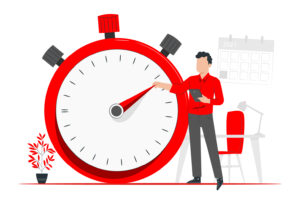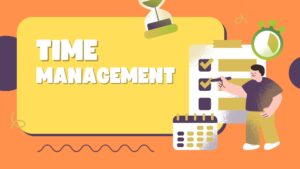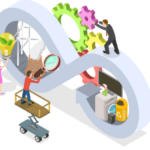Employee productivity is a crucial factor in the success of any business, as it directly impacts the bottom line and overall efficiency of an organization. Unfortunately, there are many common factors that can negatively impact an employee’s productivity, such as distractions, lack of motivation, and poor time management.
Distractions are a common enemy of productivity, as they can easily derail an employee’s focus and concentration. In today’s digital age, there are countless sources of distractions, from the constant stream of notifications on our smartphones to the lure of social media and other online distractions. Even within the workplace, there can be a multitude of distractions, such as loud co-workers, cluttered workspaces, or interruptions from meetings and other tasks.
To combat the impact of distractions, employees can create a distraction-free environment for themselves. This can involve turning off notifications on smartphones and other devices, finding a quiet workspace away from loud co-workers, and setting aside specific times for focused work. Managers can also support their employees by creating policies that limit interruptions and encourage focused work time.
Lack of motivation is another common factor that can impact an employee’s productivity. When employees are not motivated, they may be less likely to put forth their best effort and may become disengaged from their work. This can lead to lower quality of work, increased mistakes, and decreased productivity.
To help employees stay motivated, managers can encourage them to set specific, measurable, achievable, relevant, and time-bound (SMART) goals. This can give employees a clear sense of direction and a way to track their progress, which can help them stay motivated and engaged in their work. In addition, managers can provide regular feedback and support to help employees stay motivated and on track with their goals.
Poor time management is another common issue that can affect employee productivity. When employees struggle to manage their time effectively, they may find themselves constantly rushing to meet deadlines, multitasking and trying to do too much at once, or failing to prioritize their most important tasks. This can lead to increased stress, burnout, and decreased productivity.
To improve time management, employees can prioritize their tasks and focus on the most important ones first. This can involve using tools like to-do lists and calendars to organize and schedule their time, as well as setting aside specific times for focused work and breaks. Managers can also support their employees by providing resources and training on time management techniques.
In addition, taking regular breaks is an important part of maintaining productivity, as it gives the mind and body a chance to recharge and refresh. Employees should make sure to take regular breaks throughout the day, such as a short walk or a few minutes of meditation. Managers can also support their employees by promoting a work-life balance and encouraging the use of vacation time and other forms of time off.
Recognition and reward can also be powerful motivators for employees. When employees feel valued and appreciated for their contributions, they are more likely to be motivated and engaged in their work. Managers can recognize and reward their employees for their achievements, such as meeting goals or completing important projects, through methods such as praise, bonuses, or other forms of recognition.
Overall, by addressing the common factors that can affect employee productivity and implementing strategies to overcome them, managers can support their employees in achieving higher levels of productivity and success in the workplace. By creating a distraction-free environment, setting specific goals, prioritizing tasks and managing time effectively, taking regular breaks, and recognizing and rewarding achievements, managers and employees can work together to improve productivity and drive.







